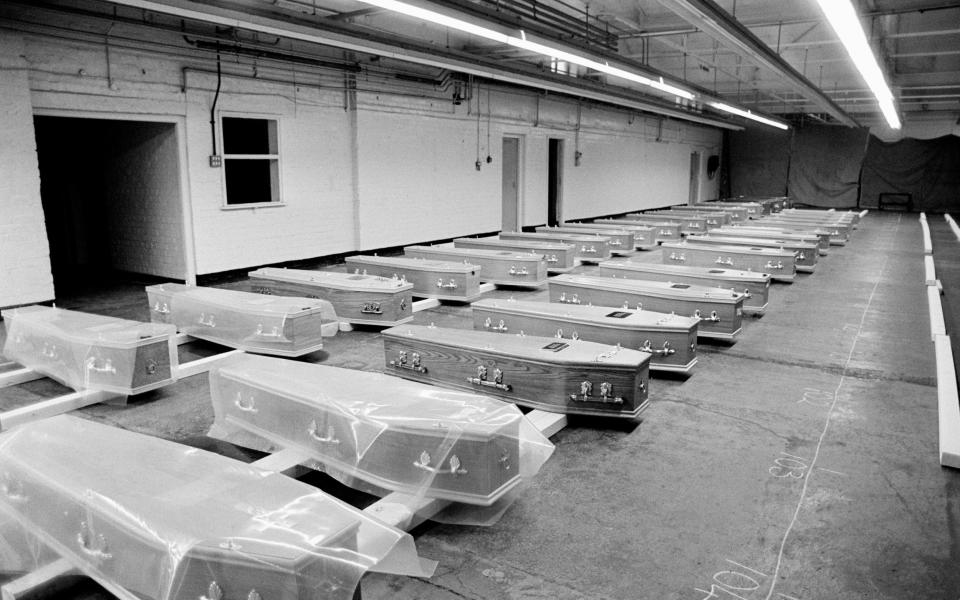The world has changed – strikes don’t work now

One cannot read or hear the news now without hearing of some group of workers going on strike. People evoke the 1970s – a decade synonymous with industrial unrest – and especially, given the many disputes at the moment, the time when a culture of strikes effectively brought down a government: the Winter of Discontent of 1979. Those of us of a certain age who recall those days, however, fail to see the similarities.
In 1979, more than 13 million people were members of trade unions in the UK; today that number has almost exactly halved. That autumn, I was waiting to go up to university and lead a life of comparative idleness, which was just as well, as the country was more or less gridlocked.
As workers demanded pay rises of between 15 and 20 per cent, footage appeared on television night after night of urban streets lined with overflowing rubbish bins, because council workers were on strike.

It was a cold and snowy winter, and often the roads were not cleared so it was hard to get around. The most emotive problem was a strike in the North West by gravediggers, leading to the dead remaining unburied. NHS ancillary workers blockaded hospitals, and only serious emergencies were admitted. A lorry drivers’ strike meant goods started to disappear from supermarket shelves, and petrol became in short supply. The consequent public rage – fed by a complacent statement by then prime minister Jim Callaghan that the tabloids headlined “Crisis? What crisis?” – brought down his administration and installed Mrs Thatcher, who promised to reform the laws affecting trades unions.
In the 1970s, union leaders were household names for one very good reason: they controlled whether or not Britain functioned. Nobody voted for them, in the case of many unions not even their members. And in most cases, those members were forced to join: if they didn’t have a union card, they didn’t work. This meant that the unions, and not management, controlled entry to many trades. This was not only true of miners, dockers, train drivers and bin men; actors used to have to have an Equity card if they wanted to work on the stage, with the additional absurdity that they couldn’t get an Equity card unless they had worked on the stage.
Until 1986, this very newspaper, like most of the rest of Fleet Street, operated a closed shop, which meant that to work for the business, you had to join a union: if it hadn’t operated one, it would never have been published. I had to join the National Union of Journalists for, I think, a month to have the honour of working for it, and pay for the privilege. The then owners, recognising the technological revolution taking place in journalism, along with most of our competitors, did away with that closed shop, and with conventional hot-metal printing controlled by the unions. It was impossible to get a job “in the print” unless you were in one of the print unions. It was hard to get into the print unions unless a father, brother, uncle or brother-in-law was already in it. That workforce lacked women or people of colour, whose absence was no wish of the paper’s management. Any journalist who ventured into the printing works was forbidden to do anything but make suggestions about changes that could be made to the typesetting, and hope the printer on the other side of the demarcation line would obligingly make the change.
No trade exemplified better the restrictive practices that could be enforced by unions, and which prevented managements from being able to manage. The closed shop meant that when the usually unelected union leaders decided, usually by equally undemocratic methods, to go out on strike, everybody obeyed. It was “one out, all out”. Anyone who refused to answer the call was termed a “scab” or a “blackleg”. They were subject to intimidation, sometimes violence, and sent to Coventry – after the strike was over, no one would speak to them.
This primitive, often savage, culture was famously and brilliantly parodied in the Boulting Brothers’ 1959 film I’m All Right Jack, starring Peter Sellers as the boneheaded fanatical shop steward Fred Kite. The following year a far more serious and grim take on the culture was depicted in The Angry Silence, in which Richard Attenborough is a worker terrorised for refusing to strike. Neither film takes any liberties with the truth, and anyone unclear of what industrial action entailed in the era before Mrs Thatcher tamed the unions should watch them for enlightenment.

But in the 20 years before she did that, things got worse. Sympathy strikes – the mass coordination of which had in 1926 enabled the General Strike – would close down businesses whose management had no connection with the dispute, and force out on-strike workers with no quarrel with their employers. For example, in the Winter of Discontent workers for Cadbury Schweppes at Bournville – mainly women – walked out and prevented deliveries by strike-breaking lorry drivers. Similarly, some oil refinery workers came out to support the tanker drivers.
They were a gift to that minority of trade unionists who were motivated not by the interests of the workers but by political ideology. They wished to advance an ultra-hard Left agenda that could destabilise a government – Labour or Conservative – that refused to do their bidding; or (when aimed at private enterprise) could seek to launch an attack on capitalism. The most recognisable manifestation to the general public of these extremists was the flying picket, someone with no connection to a particular place of work but who would be drafted in from elsewhere to intimidate any workers who sought to cross a picket line. These people, usually thugs and bullies, are now a thing of the past thanks to Thatcher.

These days when the train drivers, or ambulance drivers, or driving examiners, or teachers, or postmen, or nurses, or even (as is threatened) junior doctors go on strike, they have to give notice. In the age of Fred Kite, there was the wildcat strike. Members could be instructed to “down tools”, which was not quite the same as a strike, but it meant they stopped work while shop stewards and management had an argument.
Or there was the work to rule, in which members worked exactly according to the union rule book and therefore, usually, produced less; and an even worse outcome was achieved by the “go-slow”, which did exactly what it says on the label. The one weapon at the management’s disposal, if it felt the unions were being entirely unreasonable, was the lockout, in which they would stop workers coming in until they began to be starved into submission and were prepared to resume negotiations. As the new generation of strikers are finding, you don’t get paid and can’t draw benefits. Unions can give strike pay, but resources for most of them are scarce: they can’t fund a long strike, and they can’t afford to pay strikers anything like what they usually earn.
This is a problem for today’s strikers. Many of them are middle class, and have mortgages and other responsibilities to fund. Strikes used to run for weeks or months – the 1984-85 miners’ strike that buried the National Union of Mineworkers lasted for well over a year – but now they are on odd days. This is partly a middle-class observance of the rules, partly that workers with a professional ethos have their consciences pricked by the thought of causing undue suffering to the public, and partly because of the cost of striking.
But there is another key difference between now and the prehistoric era, exemplified by the train strikes. Many have been inconvenienced by them, which was the plan, but many have not. There is now a work from home culture that has prevented many businesses from grinding to a halt. Similarly, the postal workers have made little impact in a country devoted to the email and that has a diverse parcel delivery sector. It is not just the scope of trades unionism and union law that have changed since the 1970s: the world has, technology has, attitudes have. And the shrunken unions will find before too long that fighting 21st-century battles with 19th-century weapons simply won’t work.

 Yahoo News
Yahoo News 
